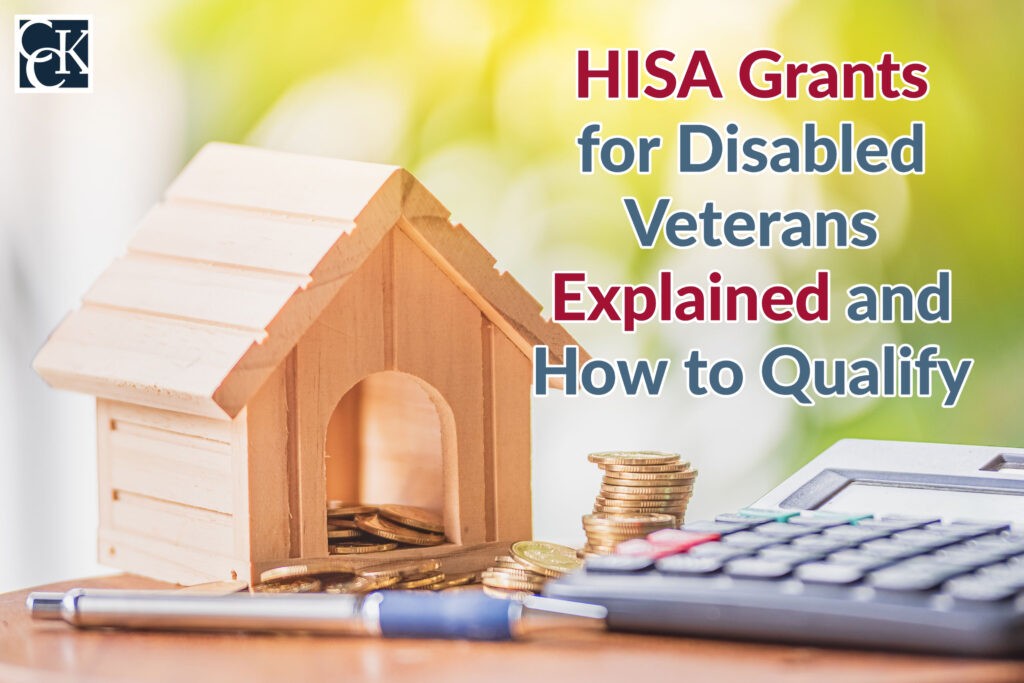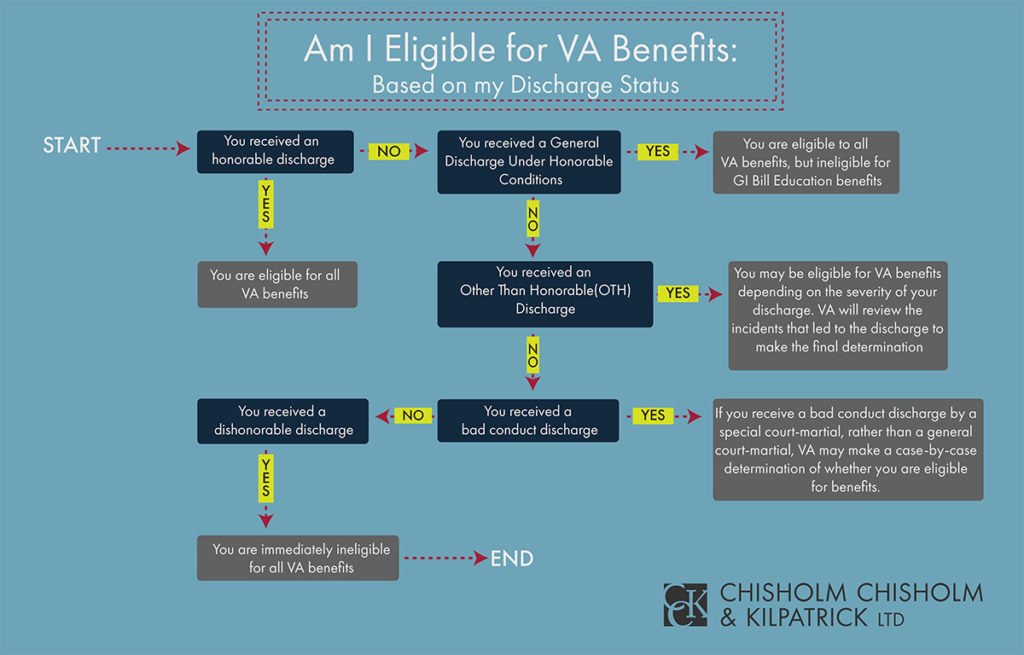HISA Grants for Disabled Veterans Explained and How to Qualify

CCK Law: Our Vital Role in Veterans Law
Home renovation grants provide disabled veterans with money to renovate their homes. The Department of Veterans Affairs (VA) offers several different programs and grants to veterans for these purposes. One of these types of grants is called Home Improvements and Structural Alterations (HISA).
Types of Housing Support Available to Veterans
There are different types of grants available to veterans for the purposes of renovating their homes. Grants can vary in terms of support and the severity of disabilities necessary to be eligible. Below are some examples of housing support grants for veterans:
- Specially Adapted Housing (SAH)
- Temporary Residence Assistance (TRA)
- Veteran Readiness and Employment (VR&E)
In addition to these programs, HISA grants are also available for veterans modifying their home on account of their disability.

What are Home Improvements and Structural Alterations Grants?
HISA grants are awarded to veterans who need to improve or structurally alter their home on account of their disability. These grants are awarded by the local regional medical center prosthetics department.
How Much Does a HISA Benefit Amount To?
Veterans can be approved for up to $6,800 to do the following:
- Address a service-connected disability
- Address a compensable disability treated “as if” a service-connected disability and for which the Veteran is entitled medical services under 38 USC 1710(a)(2)(c). For example, a disability acquired through treatment or vocational rehabilitation provided by VA
- Address a non-service-connected disability if the beneficiary has a service-connected disability rated at least 50 percent. In this example, no combining of disability percentages is allowed.
In addition, veterans may be provided with $2,000 to address a disability that does not meet the above-listed requirements.
VA does specify that all HISA projects must be medically justified for the service-connected disability and/or non-service-connected disability. To ensure that your disability meets these criteria, veterans can contact their local Prosthetic and Sensory Aids Service.

What Can HISA Grants Be Used For?
Specifically, HISA grants are a benefit that allow veterans to make medically necessary improvements and structural alterations to their primary residence. Examples of what a HISA grant can be used for include:
- Allowing entrance to or exit from the primary residence
- Use of essential lavatory or sanitary facilities (e.g., roll-in shower)
- Allowing accessibility to kitchen or bathroom sinks (e.g., lowering counters or sinks)
- Improving entrance paths or driveways in immediate areas of the home
- Improving plumbing or electrical systems made necessary due to installation of home medical equipment
What Do HISA Grants Exclude?
As mentioned above, HISA grants must be used for medically justified purposes relating to a veteran’s disability. Specifically, HISA grants may not be used for the following purposes:
- Exterior decking
- Purchase or installation of spa, hot tubs, or Jacuzzi type tubs
- Home security systems
- Removeable equipment or appliances, such as portable ramps or stairlifts
- Routine repairs, such as replacements of roofs, furnaces, or air conditioners
- New construction
How to Apply for A HISA Grant
In order to be eligible for a HISA grant, the veteran must be registered for VA health care. Additionally, the following must also be true:
- The veteran has a diagnosis of an eligible condition
- The veteran has a prescription from a VA physician in the VA health care system

To apply for a HISA grant, veterans need to submit a completed HISA application package. The package should include:
- A prescription written or approved by a VA physician which includes:
- The beneficiary’s name, address, and telephone number
- A description of the prescribed project, including the area of the home to be improved or structurally altered; type of modification and all alternatives to the modifications; and items requiring installation
- A diagnosis and medical justification for the prescribed improvement or structural alterations that demonstrates the project’s clinical appropriateness
- A completed and signed VA Form 10-0103
- If the veteran is a renter, a signed and notarized statement from the owner authorizing the improvement or structural alteration
- A color photograph of the unimproved area
After submitting the application, VA may inspect the site the veteran wishes to renovate or modify.
What is the HISA Grant Process?
Much like other VA processes, the home improvements and structural alterations grant process is multi-step. It includes the following:
Step One – Veteran Submits Application
The veteran needs to submit their completed HISA application to VA, with all the above-listed criteria.
Step Two – HISA Consult
Next, there will be a HISA consult. VA will notify the veteran within three days of receiving the consult and inform the veteran of required documentation for a complete HISA package.
Step Three – Veteran Submits a HISA Package
After the veteran submits their HISA package, VA needs to notify the veteran if their package is considered incomplete. If the package is incomplete, VA needs to request the information considered missing. If the veteran’s package is considered complete, VA will move on to the next step.
Step Four – Inspection
In this step, VA will conduct the pre-inspection or determine that no inspection is required within 30 days of receiving a complete HISA application.
Step Five – Approval
Next, VA informs the veteran whether it approved their HISA grant. VA must send an approval letter within 30 days of the HISA package submission. If the veteran’s application was not approved, VA must send a denial letter to the veteran, which will include VA Form 4107.
Step Six – Veteran Begins Project
Then, the veteran can then begin the project. If the veteran requested advance payment, then VA will provide the advance payment to the veteran within 30 days of approval.
Step Seven – Payment Request
After completion of the HISA project, the veteran will need to request final payment within 60 days of HISA approval with the required documentation. If the veteran was provided with advance payment, VA may collect advance payment from the veteran as appropriate.
Step Eight – Post-Inspection
Following this, VA may then conduct a post-inspection within 30 days of receiving the final payment request. If the inspection is sufficient, VA will pay the veteran within 30 days after receiving the request. If the post-inspection is not sufficient, VA will send VA Form 4107 to the veteran.
Was Your VA Disability Claim Denied?
If your VA disability claim and associated benefits have been denied, an accredited agent or attorney at Chisholm Chisholm & Kilpatrick LTD may be able to help you gather supporting evidence and file your appeal. Call our office today for a free case evaluation.
About the Author
Share this Post
